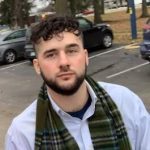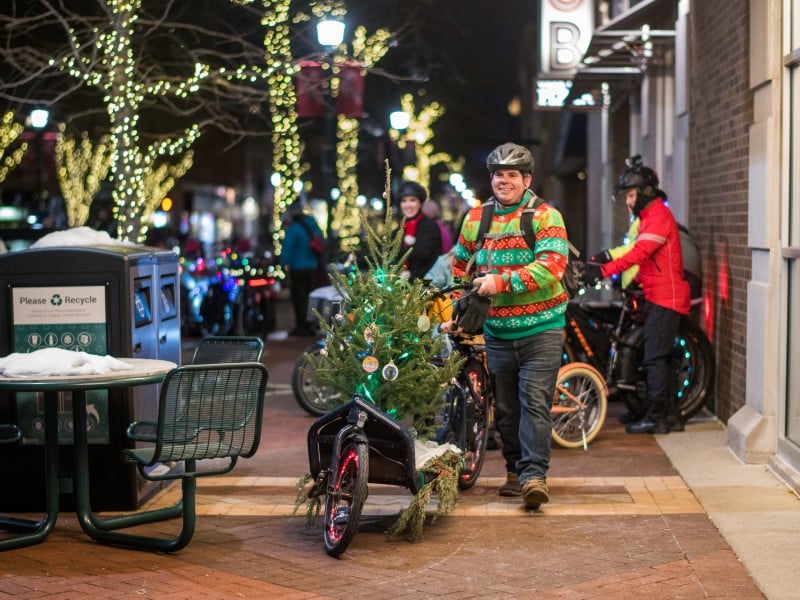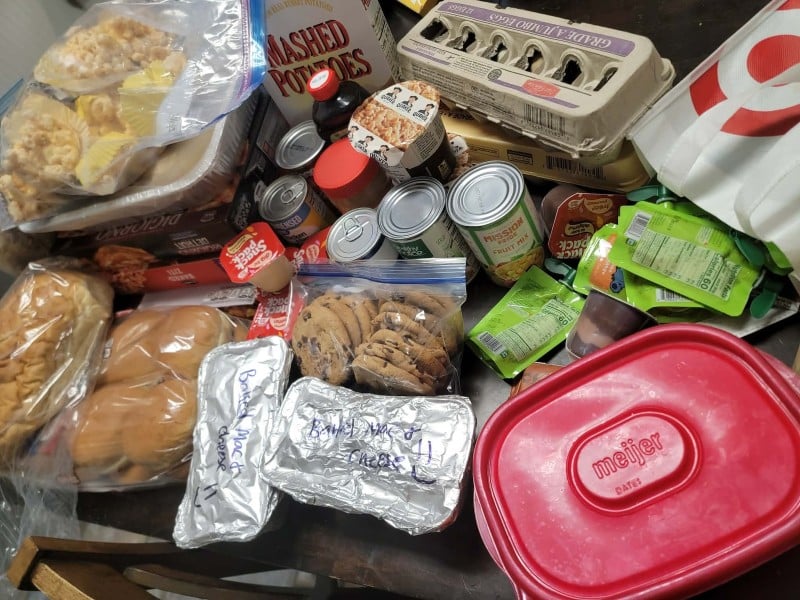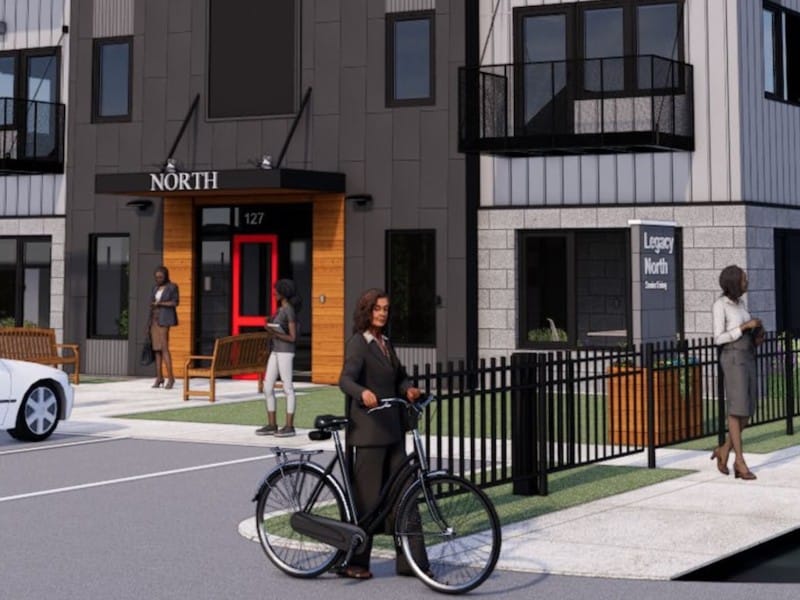Brave Space event hosted by YWCA Kalamazoo and ONEplace one of a series of anti-racism opportunities
The anti-racism tool Brave Spaces requires radical truth-telling. It's usually not comfortable but it is necessary. Find out more about this event coming up at OnePlace at the Kalamazoo Public Library.
Racism and the systems that embolden it are always evolving, and so must the training and education meant to combat them. Brave Spaces is one of the tools that has evolved to meet that need.
Radical truth-telling sparks risk and requires a place where truth-seekers can have room to understand their discomfort and the discomfort of others. This must be an intentional space, free of shame because of its educational nature.
Although the concept of Brave Spaces and their popularity are relatively new, both J. Kyon of YWCA Kalamazoo, and Frances Vicioso of the Kalamazoo Community Foundation say they took part in them before they had even heard the term Brave Space. Spaces like this happen spontaneously a lot of the time when there is an atmosphere of bravery and trust.
On Tuesday, Aug. 24, YWCA Kalamazoo and ONEPlace at the Kalamazoo Public Library are hosting a virtual Brave Space event from 1 p.m. to 5 p.m. Participants will not only be asked, but urged to step outside their comfort zone, and “lean into conflict,” as Daniel Hamilton of YWCA Kalamazoo puts it. Kyon and Hamilton will facilitate the Brave Space taking place Aug. 24 and both have experience using intentional conversation, discourse, and education to spur a group of individuals to action.
When Second Wave Media sat down with Vicioso, Kyon, and Hamilton separately, we received interchangeable answers to the question “What is a Brave Space?” arguably the first question that comes to a lot of folks’ minds when they hear of such an event. Both the facilitators and Vicioso, using similar language, say that a Brave Space is a group of people who approach taught systems of race, equity, gender, poverty, etc… and create expectations of how to challenge those learned perspectives.

OK. So what does that mean? Essentially Brave Spaces force those who participate to consider why they think the way they think, and why socio-economic majorities receive the treatment they receive. What systems have been put in place to create power structures, and why?
An example could be a group of individuals talking about the denial of services such as financial lending to specific races, either outright or by raising prices of property astronomically to put it out of their reach. This also could look like a group of folks talking about racial microaggressions. Or a Brave Space could even be the result of a workplace altercation, where the facilitator takes on the role of mediator.
J. Kyon, who has facilitated Brave Spaces for five years for both ERACCE and YWCA says, “We have a lot of expertise, and it definitely makes the job easier. But we are not experts.” Mistakes will happen, and there is accountability there, but a large portion of the shame is gone because when a mistake is made the person who made it is educated and included in a conversation, rather than having a finger pointed at them and ostracised from the group. As they process the work in the Brave Space, participants may say something that another participant or the facilitator will correct them on, but the intention of the space is educational, and they should leave feeling more educated and prepared for their next conversation about this topic rather than shamed and ignorant.
Very few of us are taught to treat risk as welcome when it comes to social issues, but a Brave Space is where that can happen. Daniel Hamilton says it is, “A space where risk is allowed. Equally balanced by grace and patience.” Both of the facilitators admit that they make mistakes too, but the most important thing is owning those moments and pushing through the discomfort to learn something.
By the end of the Brave Space taking place on Aug. 24, those involved should be more self-sufficient when talking about racial equity.

Hamilton is the Public Policy Lead for YWCA Kalamazoo and does a lot of work both behind the scenes and out front that focuses on policies in education and schools that negatively affect children of color. Hamilton’s work with policy for YWCA Kalamazoo intersects with his facilitation of Brave Spaces because they both empower others and thrive on action.
J. Kyon adds, “A Brave Space won’t fix anything, it is a tool.” A tool that sets out action items that must be used perpetually to be effective.
Tearing down racist systems is hard work and emotional labor. Just as with physical labor, it is incredibly important to take breaks. All of the interviewees touched on this need for rest.
This discussion makes clear that one of the most important aspects of a Brave Space is trust. Without it, the whole thing would fall apart. “The facilitator is very important.” says Vicioso, and the space needs to be facilitated “in good faith.”
In this instance, Vicioso explains that when attending a Brave Space in the past, she really needed to know the facilitators’ intention for the space before feeling comfortable enough to get uncomfortable. Throughout our interviews, it became plain that all three agree the intention behind any truth-telling space must be clear. Part of this intention is Work with a capital “W”, but also care for oneself and others.
Both Kyon and Hamilton send out information regarding the event to the participants before the day it is set to take place. This notice includes general housekeeping, just like any other event, but also includes specific instructions to check in with and care for oneself before, during, and after the Brave Space. This self-care instruction is not solely for the participants, but also for the facilitators. It is similar to when someone goes to the gym or does a lot of exercise, it is important to eat the right foods, stretch, and get enough rest, in other words, care for themself.
The discomfort that a Brave Space brings means there is a tough but needed conversation taking place, and according to Hamilton, “If we are uncomfortable talking about racism we are headed in the right direction.”
Those interviewed for this story agree that Brave Spaces are necessary and important. They all mention the work it takes to participate in a Brave Space, and they wanted to be clear how invaluable this type of experience is regardless of the challenge.
Vicioso, Kyon, and Hamilton were all extremely transparent that this is not a “safe space,” it is a space that is meant to be approached with brave, loving, educational, trustworthy, and accountable voices. The outcome of the space depends on how much people share, practice, and try new things.
“Helping someone understand disparities that exist among marginalized identities,” Hamilton says, “and how systems perpetuate these disparities is important in helping to diminish the impact of certain individuals’ privilege and power that are used to reinforce and maintain racism.”
The YWCA Kalamazoo and ONEPlace event takes place virtually Aug. 24 from 1 p.m. to 5 p.m., and although the sign-up is already full, there is a waitlist available. Given the turnout for this event and others that took place recently, there will most likely be more. Watch the ONEPlace and YWCA Kalamazoo sites for more information on future Brave Spaces.
YWCA Kalanmazoo Website
ONEPlace Webpage on KPL Website
















